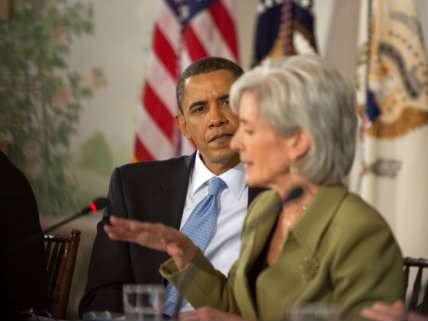43 Percent of Americans Say They'll Blame Obamacare for Health Care Premium Increases or Plan Changes Next Year

Yesterday I argued that with Obamacare, Democrats have tied their political futures not only to the success of the health law, but to the broader American health system—and, consequently, to whatever cost and access problems it has. A Reason-Rupe poll released this morning supports this argument, finding that more Americans would blame the health care law than any other source for insurance plan changes or premium increases next year. From the poll:
If your health care plan changes, or if your insurance premiums increase in the next year, do you think you'll blame…
• The federal health care law……………. 43%
• The health insurance company………… 26%
• The economy…………………………………. 17%
• Your employer………………………………… 5%
• Other (VOL.) …………………………………… 4%
• Don't Know……………………………………… 4%
• Refused………………………………………….. 1%
• Total…………………………………………… 100%
Is this perfectly fair? Probably in some cases. In others, though, premium increases won't be directly or fully attributable to the health law.
But that's the point I was trying to make. The details almost don't matter, because with Obamacare, Democrats have essentially taken ownership of the American health system. So while I'm sure they'd like to take credit for all the bits that people like, and avoid blame for parts that people don't, that's not going to be the reality. They will get credit for some of the health law's benefits and other things people like, but they will also end up with a lot of the blame for things that people see as problems.
At the same time, the law has blunted the effectiveness of their usual response. Over the years, Democrats have tended to blame health insurers for premium increases and plan problems, but that approach won't work as well as it used to, because Americans now view Obamacare—and, it's probably safe to assume, the party that passed it—as having a bigger influence on their premiums and plan choices than the insurers.
